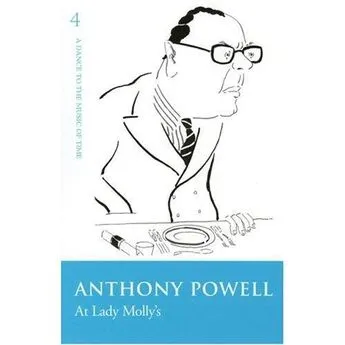Anthony Powell - A Buyers Market
- Название:A Buyers Market
- Автор:
- Жанр:
- Издательство:Arrow
- Год:2005
- ISBN:нет данных
- Рейтинг:
- Избранное:Добавить в избранное
-
Отзывы:
-
Ваша оценка:
Anthony Powell - A Buyers Market краткое содержание
Anthony Powell's universally acclaimed epic A Dance to the Music of Time offers a matchless panorama of twentieth-century London. Now, for the first time in decades, readers in the United States can read the books of Dance as they were originally published-as twelve individual novels-but with a twenty-first-century twist: they're available only as e-books. The second volume, A Buyer's Market (1952), finds young Nick Jenkins struggling to establish himself in London. Amid the fever of the 1920s, he attends formal dinners and wild parties; makes his first tentative forays into the worlds of art, culture, and bohemian life; and suffers his first disappointments in love. Old friends come and go, but the paths they once shared are rapidly diverging: Stringham is settling into a life of debauchery and drink, Templer is plunging into the world of business, and Widmerpool, though still a figure of out-of-place grotesquerie, remains unbowed, confident in his own importance and eventual success. A Buyer's Market is a striking portrait of the pleasures and anxieties of early adulthood, set against a backdrop of London life and culture at one of its most effervescent moments.
A Buyers Market - читать онлайн бесплатно полную версию (весь текст целиком)
Интервал:
Закладка:
Uncle Giles was fond of calling people richer or in a general way more advantageously placed than himself, against whom he could at the same time level no specifically disparaging charge, “well connected enough, I don’t doubt,” a descriptive phrase which he would sometimes indiscriminately apply; but I suppose that the Gorings might truthfully have been so labelled. They used to take a house in Upper Berkeley Street for the first part of the summer, though dinner-parties were rare there, and not as a rule convivial. Most of the responsibility for Barbara’s “season” fell on her aunt, who probably regarded her niece’s lively character as an alleviation of difficulties posed by her own daughter, rather than any additional burden on the household.
Lady Walpole-Wilson, for whom I felt a decided affection, was a tall, dark, distinguished-looking woman, with doe-like eyes, to whose appearance some vice-regal or ambassadorial marriage seemed appropriate. Her comparative incapacity to control her own dinner-parties, at which she was almost always especially discomposed, seemed to me a kind of mute personal protest against circumstances — in the shape of her husband’s retirement — having deprived her of the splendours, such as they were, of that position in life owed to her statuesque presence; for in those days I took a highly romantic view, not only of love, but also of such things as politics and government: supposing, for example, that eccentricity and ineptitude were unknown in circles where they might, in fact, be regarded — at least so far as the official entertaining of all countries is concerned — almost as the rule rather than the exception. I can now see that Lady Walpole-Wilson’s past experience may have made her aware of this tendency on the part of wives of distinguished public figures to be unable, or unwilling, to make suitable hostesses: a knowledge, coupled with her natural diffidence, that caused her to give an impression sometimes that at all costs she would like to escape from her own house: not because dispensation of hospitality was in itself in the least disagreeable to her as much as on account of accumulated memories from the past of wounded feelings when matters had “gone wrong.”
To these sentiments was no doubt added the self-inflicted embarrassment implicit in the paraphernalia of launching a daughter — and, if it could be remarked without unkindness, “what a daughter”—on to an obdurate world; not to mention grappling with purely hypothetical questions, such as the enigma, universally insoluble, of what other mothers would think of the manner in which she herself, as a mother, was sustaining this load of care. In this last affliction Sir Gavin’s attitude was often of no great help, and it is hard to say whether either of them really believed that Eleanor, who had always been more or less of a “problem”—there were endless stories of nose-bleeds and headaches — would ever find a husband. Eleanor had always disliked feminine pursuits. When we had met in Paris before either of us had grown up, she had told me that she would at that moment much prefer to be staying with her cousins in Oxfordshire: an attitude of mind that had culminated in detestation of dances. This resentment, since I had known her in those early days, did not seem as strange to me as to many of the young men who encountered her for the first time at the dinner-table, where she could be both abrupt and sulky. Barbara used to say: “Eleanor should never have been removed from the country. It is cruelty to animals.” She was also fond of remarking: “Eleanor is not a bad old girl when you get to know her,” a statement unquestionably true; but, since human life is lived largely at surface level, that encouraging possibility, true or false, did not appreciably lighten the burden of Eleanor’s partners.
The Walpole-Wilsons, accordingly, provided not only the foundation, but frequently the immediate locality, also, for my association with Barbara, whom I used to meet fairly often at dances, after our walk together in the park. Sometimes we even saw a film together, or went to a matinée. That was in the summer. When she came to London for a few weeks before Christmas, we met again. By the opening of the following May I was beginning to wonder how the situation was to be resolved. Such scuffles as had, once in a way, taken place between us, on the comparatively rare occasions When we found ourselves alone together, were not exactly encouraged by her; in fact she seemed only to like an intermittent attack for the pleasure of repulsing it Certainly such aggression carried neither of us any farther. She liked ragging; but ragging — and nothing more — these rough-and-tumbles remained. “Don’t get sentimental,” she used to say; and so far as it went, avoidance of sentiment — as much as avoidance of sentimentality — appeared, on her side, a genuine inclination.
This affair with Barbara, although taking up less than a year, seemed already to have occupied a substantial proportion of my life; because nothing establishes the timeless ness of Time like those episodes of early experience seen, on re-examination at a later period, to have been crowded together with such unbelievable closeness in the course of a few years; yet equally giving the illusion of being so infinitely extended during the months when actually taking place. My frame of mind — perhaps I should say the state of my heart — remained unchanged, and dances seemed pointless unless Barbara was present. During that summer Boyhood of Cyrus developed its mystic significance, representing on my arrival in front of it a two-to-one chance of seeing Barbara at dinner. If we both ate at the Walpole-Wilsons’, she was at least under my eye. She herself was always quite unaware of the sentimental meaning thus attached to Mr. Deacon’s picture. When first asked about it, she could not for a long time make out what picture I spoke of; and once, when we were both in the hall at the same time and I drew her attention to where it hung, she assured me that she had never before noticed its existence. Eleanor was equally vague on the subject.
“Are they going bathing?” she had asked. “I don’t care for it.”
This matter of being able to establish Barbara’s whereabouts for a specific number of hours brought at least limited relief from agonies of ignorance as to what her movements might be, with consequent inability to exercise control over her in however slight a degree; for love of that sort — the sort where the sensual element has been reduced to a minimum — must after all, largely if not entirely, resolve itself to the exercise of power: a fact of which Barbara was, of course, more aware than I.
These torments, as I have said, continued for a number of months, sometimes with great severity; and then one afternoon, when I was correcting proofs in the office, Barbara rang up and asked if I would dine at Eaton Square that evening for the Huntercombes’ dance. I decided immediately that I would put off Short (my former undergraduate acquaintance, now become a civil servant), with whom, earlier in the week, I had arranged to have a meal, and at once agreed to come. I had experienced the usual feeling of excitement while talking with her on the telephone; but suddenly as I hung up the receiver — thinking that perhaps I was leaving Short rather ruthlessly in the lurch so far as his evening was concerned — I found myself wondering whether I was still in love. Barbara’s voice had sounded so peremptory, and it was clear that someone else had failed her at the last moment. In that there was, of course, nothing to be taken reasonably amiss. Obviously I could not expect to sit next to her at dinner every night of our lives — unless I married her; perhaps not even then. And yet my heart seemed a shade lighter. Was the fever passing? I was myself still barely conscious of its declension. I had not at that time met Barnby, nor had opportunity to digest one of his favourite maxims: “A woman always overplays her hand.”
I had, naturally, given a good deal of thought at one time or another to the question of love. Barbara did not represent the first attack. There had been, for example, Peter Templer’s sister, Jean, and Madame Leroy’s niece, Suzette; but Jean and Suzette now seemed dim, if desirable, memories; and I felt, for no particular reason, more sure now of the maturity of my approach. At the same time there was certainly little to boast about in my handling of the problem of Barbara. I could not even make up my mind — should anything of the sort have been practicable — whether or not I really wanted to marry her. Marriage appeared something remote and forbidding, with which desire for Barbara had little or no connection. She seemed to exist merely to disturb my rest: to be possessed neither by lawful nor unlawful means: made of dreams, yet to be captured only by reality. Such, at least, were the terms in which I thought of her as I approached the Walpole-Wilsons’ that evening.
Taxis were drawing up in the late sunshine before several of the houses in the square, and young men in tails and girls in evening dress, looking rather selfconscious in the bright daylight, were paying fares or ringing front-door bells. It was that stagnant London weather without a breath of air. One might almost have been in the Tropics. Even Archie Gilbert, who had immediately preceded me in the hall — he had never been known to be late for dinner — looked that night as if he might be feeling the heat a little. His almost invisibly fair moustache suggested the same pique material as the surface of his stiff shirt; and, as usual, he shed about him an effect of such unnatural cleanliness that some secret chemical process seemed to have been applied, in preparation for the party, both to himself and his clothes: making body and its dazzling integument, sable and argent rather than merely black and white, proof against smuts and dust. Shirt, collar, tie, waistcoat, handkerchief, and gloves were like snow: all these trappings, as always apparently assumed for the first time: even though he himself looked a shade pinker than usual in the face owing to the oppressive climatic conditions.
His whole life seemed so irrevocably concentrated on “debutante dances” that it was impossible to imagine Archie Gilbert finding any tolerable existence outside a tailcoat. I could never remember attending any London dance that could possibly be considered to fall within the category named, at which he had not also been present for at least a few minutes; and, if two or three balls were held on the same evening, it always turned out that he had managed to look in at each one of them. During the day he was said to “do something in the City”—the phrase “non-ferrous metals” had once been hesitantly mentioned in my presence as applicable, in some probably remote manner to his daily employment. He himself never referred to any such subordination, and I used sometimes to wonder whether this putative job was not, in reality, a polite fiction, invented on his own part out of genuine modesty, of which I am sure he possessed a great deal, in order to make himself appear a less remarkable person than in truth he was: even a kind of superhuman ordinariness being undesirable, perhaps, for true perfection in this role of absolute normality which he had chosen to play with such éclat . He was unthinkable in everyday clothes; and he must, in any case, have required that rest and sleep during the hours of light which his nocturnal duties could rarely, if ever, have allowed him. He seemed to prefer no one woman — débutante or chaperone — to another; and, although not indulging in much conversation, as such, he always gave the impression of being at ease with, or without, words; and of having danced at least once with every one of the three or four hundred girls who constituted, in the last resort, the final cause, and only possible justification, of that social organism. He appeared also to be known by name, and approved, by the mother of each of these girls: in a general way, as I have said, getting on equally well with mothers and daughters.
Читать дальшеИнтервал:
Закладка:









